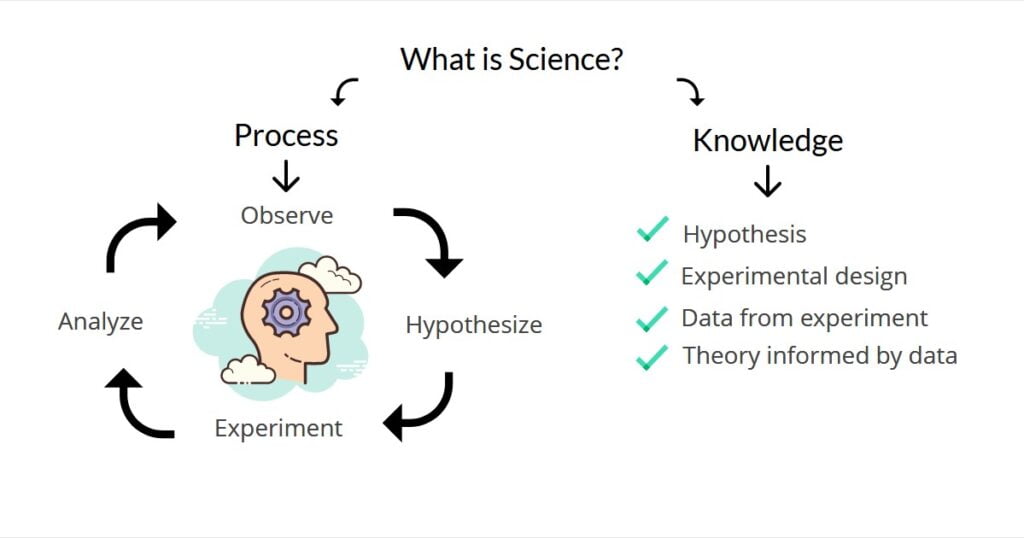Science is commonly defined as a body of knowledge and the rigorous process of gathering observations about the world. The scientific enterprise distinguishes itself from other sources of knowledge by seeking to prove itself wrong. That is why some aptly describe it as organized skepticism.

An Example of Science
The most famous example of science is perhaps the story of Galileo Galilei. Back in the 1590s, it was thought, as Aristotle did, that if you dropped two objects at the same time they would fall at a speed proportional to their mass. Heavier objects would fall faster than lighter objects. Think about a feather and a hammer – this would make sense because a feather is lighter, and air resistance affects it more. We assume correctly a hammer would touch the ground first.
But Galileo disagreed!
He thought (or hypothesized) that if you dropped 2 objects of similar material but different weights (2 spheres instead of a hammer and a feather) they would fall approximately at the same speed. This way air friction would be less significant. As the legend goes he conducted this experiment on the Leaning Tower of Pisa and proved himself correct.
Roughly four centuries later. Astronauts landed on the moon. Astronaut David Scott performed a version of the experiment on the Moon during the Apollo 15 mission in 1971, dropping a feather and a hammer from his hands. Because of the negligible lunar atmosphere, there was no drag on the feather, which hit the ground at the same time as the hammer. They found out that Galileo was right.
To get started in getting your grasp on science you could also check out some great audiobooks, or books on science. Alternatively, if you want something more along the lines of fiction, we also have a list of some of the best books in science fiction.